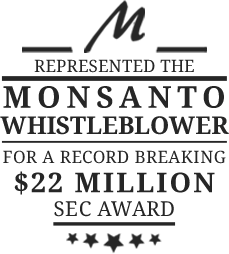When Is Insider Trading Illegal?
While many people hear the term “insider trading,” they automatically associate it with illegal activity. This, however, isn’t always the case. It’s actually incredibly common for company insiders to own stock in the company they work for. Therefore, it follows that some insider trading must be allowed.
That being said, certain types of insider trading can destabilize the securities markets and give some investors an unfair advantage over others. In an effort to protect the financial markets and investors as a whole, the Securities and Exchange Commission (SEC) does not allow this type of insider trading and pursues it aggressively.
To this end, the SEC relies on information it receives from whistleblowers to expose securities fraud such as illegal trading. But how does an insider trading whistleblower know if a trade is illegal or not?
Insider Trading: When It’s Legal
It’s a simple fact that not all insider trading can be illegal. Otherwise investors who own stock in the company they work for would be forced to “go down with the ship” if the company’s stock began to decline in value.
Insider trading is perfectly legal when it’s based on information that is publicly available to all investors. As long as the traders involved in a deal both have access to the same information, the SEC won’t have a problem with the trade—even if one of the parties is a corporate insider.
However, this type of insider trading must be reported on specific forms and disclosed to the SEC. These forms must also be submitted within two days of the transaction.
Insider Trading: When It’s Illegal
Insider trading becomes illegal when a company insider buys or sells stock based on material information that isn’t publicly available. This inside information gives the insider a huge advantage over other investors, who stand to lose substantial money because of this lack of relevant information.
Illegal insider trading also applies to cases where a corporate insider has “tipped off” an outsider. Even though the investor isn’t an insider, he or she possesses material information not publicly available, meaning that an insider trading whistleblower could report the transactions to the SEC.
Report Illegal Insider Trading to the SEC
Whether you’re an insider who’s witnessed other insiders engaged in illegal trading or you’re an outsider who’s discovered evidence of insider trading, you can report what you know to the SEC and potentially get rewarded.
Meissner Associates is a law firm that has a thorough understanding of the SEC’s rules and regulations protecting and rewarding whistleblowers. In fact, our firm’s founder helped write them. When you submit your tip through us, you’ll benefit from all of that knowledge and experience going to work on your behalf.
To find out if what you know could qualify you to become an insider trading whistleblower, simply submit the form below. Our tip evaluation is free and completely confidential, so there’s no risk involved in getting the honest legal advice you need.









